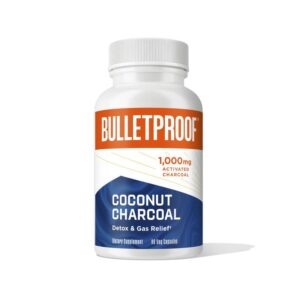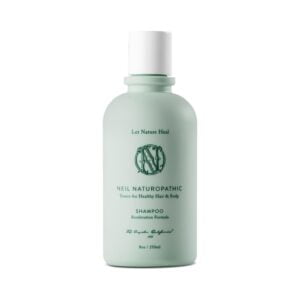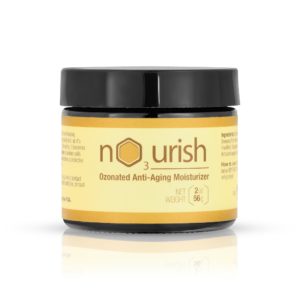Learning to reduce household toxins isn’t as complicated as it may seem.
It’s no secret that our planet is devastatingly polluted by a staggering array of chemicals, many of which have not been adequately studied to determine the negative effects they will have on the natural world and on the health of humans and other species. The chemicals that are seeping household and industrial toxins into our land, water, air and food come from a variety of sources, among them car exhaust, industrial cleaners and solvents released into waterways, pesticides sprayed on agricultural crops, and common household home and beauty items that we use every day.
The EPA has developed certain baseline numbers that are referred to when identifying safe levels of exposure to household toxins, although these numbers do not consider the variety of chemicals that any one person has in their body at a given time (some studies have shown some people have more than 70 various toxic chemicals present in their blood and body tissue). Nor do the baseline levels take into account the way those chemicals may interact with each other once lodged inside the body. Furthermore, the effects of toxic body burden, the cumulative exposure to thousands of chemicals over a lifetime, is a factor often overlooked in Western medicine when identifying and treating any number of illnesses.
John L. Wilson, Jr., MD, FAAFP, a practitioner at the Great Smokies Medical Center of Asheville, often works with patients suffering from the effects of built up toxicity in the body.
[When dealing with heavy metal and chemical toxicity] it is a common experience for people to have several symptoms, but are told by doctors that ‘all their tests are normal.’ These symptoms are termed functional health problems – those that have not yet advanced to organic disease in which cellular changes occur and pathology becomes evident such as in Alzheimer’s disease, autoimmune diseases, migraines, heart disease, hypothyroidism, etc. Functional symptoms are both a clue and an opportunity to determine what is causing symptoms to ultimately avoid further exposure and associated diseases.
As the body of knowledge regarding toxic body burden continues to expand, it becomes gravely concerning that it is considered acceptable to have any level of body toxicity caused by unintentional ingestion or absorption of household toxins and chemicals. The EPA and other regulatory agencies, rather than identifying what is deemed “safe” should instead be engaged in finding ways to eliminate these types of pollution in the first place, and to hold polluters accountable for their actions.
While we wait (and wait) for that to happen, we need to take matters into our own hands, making simple household changes to reduce the levels of toxicity we are exposed to while we cook, clean, and bathe. Incorporating these 10 consumer/lifestyle changes listed below can help detox your body and home and serves as an important step along the path of ensuring that our homes become safe and healthy havens.
How To Reduce Household Toxins
1. Get Rid Of Conventional Household Cleaners: Full of petrochemicals and a host of other toxic ingredients, these cleaners release fumes and toxic residue that get ingested through inhalation and skin contact. Short term effects can be immediate and include asthma, skin rashes, dizziness, and blurred vision, while longer term effects from prolonged exposure can result in neurological impairments, respiratory ailments, birth defects, and cancer. Luckily there are a slew of alternative cleaning products that work just as well as the traditional chemical laced ones, and that will not slowly poison you and your home. And, in addition to purchasing ready-made non-toxic cleaners, consider making your own using easy to find ingredients like vinegar, baking soda, essential oils, and Colloidal Silver, a powerful disinfectant and immune booster. It’s simple, cost effective, and fun!
2. Switch Out Your Conventional Dish Soap: Whether you love washing dishes or not, you would be well advised to get rid of your conventional dish soap right now and buy or make some that is organic and non-toxic. The list of harmful ingredients that become household toxins in common dish soaps includes petrochemicals, formaldehyde, fragrance (often an undisclosed combination of chemicals), heavy duty solvents, and synthetic colors. These ingredients have been shown to cause allergic reactions, respiratory problems, and cancer when ingested through air or skin contact. So, much like the household cleaners discussed above, one alternative is to make your own dishwashing soap, or purchase ones that have received positive ratings from the Environmental Working Group’s Guide to Healthy Cleaning like this natural dish soap.
3. Exchange Your Plastic Containers: Plastic storage containers are easy and convenient, but many of them, especially those with the numbers 3, 6, and 7 have bis-phenol-A (aka BPA) in them, a powerful endocrine disruptor that has been shown to cause neurological and reproductive issues, contribute to early puberty, and cause a variety of cancers.
According to Dr. Wilson, “Chemicals [are especially concerning because they] attach to proteins in the body and affect the ability of the immune system to differentiate self from non-self, thereby contributing to autoimmune disease.”
BPA, in addition to the above health issues, also mimics the action of estrogen which is concerning because “elevated estrogen levels play a role in obesity, cancer, problems conceiving or carrying a pregnancy to term, affect brain development, birth defects, [and] low sperm count.” Interestingly, some of the BPA alternatives that have been recently developed have exhibited even more toxic effects than BPA itself. Some of the best alternatives to plastic are glass storage containers and stainless steel or glass water bottles. It is also a good rule of thumb to cut down on purchasing pre-packaged, prepared food, as most of the wrappings have BPA and other harmful chemicals in them.
4. Get Rid Of All Teflon And Non-Stick Pans: While it may be nice to have the ease of a non-stick pan, consider that these are made with polytetrafluoroetheylene (PTFE), a toxic chemical otherwise known as Teflon and trademarked by the Dupont chemical company. These chemicals have been proven to cause infertility, birth defects, cancer and a host of other scary health issues, and are ingested when Teflon pans are heated, scraped, or damaged. Teflon and its associated chemicals are potent environmental toxins well before they are made into the non-stick cookware that you purchase at the store. Recent investigative pieces on the effects of these chemicals on factory workers and the environment are well worth reading. As an alternative, consider using a high quality brand cast iron or stainless steel pans. Cast iron is virtually non-stick when well-seasoned, and both alternatives will last for many years.
5. Ditch The Air Fresheners And Scented Candles: Unless they are organic and made with essential oils, please get these out of your home right now! They are the epitome of household toxins. You may love the scents and the memories they conjure, but consider that what you are smelling are chemically created fragrances, made largely from benzenes, a variety of potently toxic chemicals that cause respiratory issues, headaches, asthma, dizziness, and cancer, to name a few. Phalates, another group of chemicals found in air fresheners, are powerful reproductive and endocrine disrupters that contribute to developmental disorders in both children and adults. Candles, at least conventional ones, aren’t much better for your health. They are generally made with parrafin, a sludge waste byproduct from the petrochemical industry. In addition to paraffin, most candles also have lead in the wicks. There are many alternatives to candles and air fresheners, most using essential oils that smell wonderful and provide therapeutic benefits that alleviate stress, boost positive mood, and promote mental focus and concentration. There are even essential oil diffusers that can be put in a car to replace car fresheners.
6. Stop Using Nail Polish: It’s true that painting ones nails is a fun form of self-expression, but consider that the majority of common nail polish brands contain phthalates and triphenyl phosphate THP, among other chemicals, that act as endocrine disruptors and have been found in high levels in the bloodstreams of women and young adults just hours after painting their nails. These chemicals have been shown to negatively impact metabolism, reproduction and developmental abilities, and can cause immediate reactions like skin rashes and respiratory problems. If you can’t let go of painting your nails, consider purchasing some naturally sourced nail polish options like these that provide the beauty benefits without the toxicity.
7. Opt For Organic, Plant Based Shampoo, Conditioner, And Body Wash: Sad to say, most of the “name brand” bath and shower products on the market today are made up of a staggering number of chemicals and preservatives, including:
- Sodium Lauryl Sulfate (SLS)- A powerful surfactant generally sourced from petroleum that acts as a foaming agent and lingers in the body for many days, often causing a slew of allergic reactions including rashes, respiratory problems, and dizziness.
- Parabens– Commonly used preservatives that can cause skin irritation and have been shown to cause reproductive damage and organ toxicity. They mimic the action of estrogen and have been attributed to some forms of breast cancer.
- Phenoxyethanol– Another preservative used in skincare and beauty products that has been proven to cause toxicity of the organs, irritation to skin, eyes and lungs, and in high doses can cause nervous system shutdown and extreme vomiting.
- Fragrances– A wonderfully vague and benign sounding word for a host of chemicals that are combined to make your products smell nice, fresh, and ultimately toxic. There are 14 commonly used chemicals that make up the term “fragrance” (most of the combinations considered trade secrets, and thus not legally required to list on the label) and these have all been shown to cause a multitude of health problems including organ toxicity, headaches, and skin reactions.
The good news is that there are many naturally sourced and organic hair care products readily available that work just as well if not better and smell wonderful. and, although some of them may carry a higher price tag than you’re used to, you will rest easy knowing that your morning shower routine is not slowly poisoning you.
8. Say NO To Fluoride Toothpaste: The majority of toothpaste on the market are full of fluoride (now officially identified by the prestigious journal The Lancet as a potent neurotoxin that causes developmental issues, cancer, and general organ toxicity), sodium lauryl and sodium laureth sulfates, known irritants to the skin and organs, as well as a host of dyes, sweeteners, and foaming agents, all known to have toxic or allergy inducing properties. It is unfortunately almost impossible to entirely avoid fluoride as it has become common practice to add it to many municipal drinking water sources, as a means to eliminate tooth decay and cavities, although recent studies have shown that fluoride does not actually eliminate or prevent tooth decay. As an alternative you can purchase fluoride-free toothpaste, or better yet, make your own toothpaste/powder, using simple ingredients like baking soda, coconut oil and essential oils, a yummy, economical and environmentally friendly alternative that is entirely safe when ingested.
9. Stop Using Conventional Mascara: Most common name brand mascaras are made up of compounds such as parabens, aluminum powder, and retinyl acetate that are toxic to your health and can cause infection, blindness, act as endocrine disruptors, and cause biochemical and cellular changes, often leading to increased risk of cancers. Many mascaras also use a compound called carbon black, a byproduct of incomplete coal combustion, to enhance the dark black color found in most products. There are some natural alternatives worth exploring, but even with those safer options, it is still a good idea to thoroughly read labels to make sure you are not accidentally purchasing something that will harm you.
10. Purchase Plant–Based Eyeliner and Eye Shadow: Much like mascara, most conventional brands of eyeliner and eye shadow use a variety of toxic ingredients in their products, among them carbon black, parabens, lead and other heavy metals, and butylated compounds, all of which cause reactions ranging from skin rashes and breathing problems to reproductive issues and cancer. The Environmental Working Group’s website offers a detailed list of products, rating them based on their ingredients and safety for use. Many plant based products like this brand use natural pigments and other ingredients that provide the desired effect, without the toxic burden.
Patience And Prevention Will Set You Free From Household Toxins
It can be easy to feel overwhelmed when presented with all the household toxins and pollution problems facing us on a personal and planetary level, but according to Dr. Wilson, “Prevention is the best medicine when it comes to toxins.” In addition to watching what items we purchase and use in our homes, we can also engage in personal detox regimens that include a variety of cleanses and fasts. This gives our bodies a chance to rest and re-balance, bringing us back into our true physical and emotional alignment. The path to optimal wellness is often a long one, requiring patience and focus, but by incorporating self-education, general awareness, and healthy nutritional choices, we can make small steps towards positive, health-focused changes that will multiply over time.
 Rosanna Keyes is a writer, editor, yoga teacher, and office manager extraordinaire living in the Asheville, NC area. She has a B.S.S. from Ohio University with concentrations in English Literature, Creative Writing, and Geography. She has been practicing yoga for over ten years and received her 200-hour teaching certification in 2013. Over the years yoga and writing have been important mainstays in her life. She is continually amazed and humbled at the deep healing, balance, and peace that comes from these practices, and she is grateful to be able to share those experiences with others.
Rosanna Keyes is a writer, editor, yoga teacher, and office manager extraordinaire living in the Asheville, NC area. She has a B.S.S. from Ohio University with concentrations in English Literature, Creative Writing, and Geography. She has been practicing yoga for over ten years and received her 200-hour teaching certification in 2013. Over the years yoga and writing have been important mainstays in her life. She is continually amazed and humbled at the deep healing, balance, and peace that comes from these practices, and she is grateful to be able to share those experiences with others.
Submit your story or essay to Buzzworthy Blogs
-
Sale Product on sale
 Bulletproof Coconut Charcoal$18.95 – $54.00Rated 4.00 out of 5 based on 1 customer rating
Bulletproof Coconut Charcoal$18.95 – $54.00Rated 4.00 out of 5 based on 1 customer rating -
 Neil Naturopathic: Acceleration Formula Shampoo$38.38 — or subscribe and save 5%
Neil Naturopathic: Acceleration Formula Shampoo$38.38 — or subscribe and save 5% -
 NO3URISH Ozonated Anti-Aging Moisturizer$44.49 – $126.47Rated 4.81 out of 5 based on 21 customer ratings
NO3URISH Ozonated Anti-Aging Moisturizer$44.49 – $126.47Rated 4.81 out of 5 based on 21 customer ratings




Comments are closed.